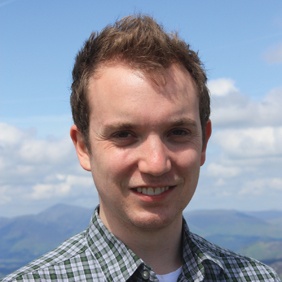Practical Test: Mark Bell hopes his theories about nuclear weapons will contribute to public policy

MIT Political Science PhD Candidate Mark Bell
When Mark Bell came to MIT in 2010, he was looking for a way to combine his desire to influence public policy with his penchant for academic research. Almost immediately, he found it.
As a class assignment, Bell investigated the viability of claims by prominent military figures in his native Britain that budget cuts would threaten the nation’s ability to defend the Falkland Islands. “I was skeptical,” says Bell, who is beginning his fourth year as a doctoral candidate in MIT’s political science department. “The more I looked into it, the more I felt that Britain could easily defend the Falklands.”
Bell’s analysis was so compelling that he briefed former British Foreign Secretary David Miliband on his findings in April 2011 and later met with the Governor of the Falkland Islands. He published his findings in the September 2012 issue of Defence Studies and contributed an essay on the subject for The Huffington Post.
The work is an example of the amalgam of policy and academics that Bell has been looking for since his undergraduate days at Oxford University. Today, Bell studies international relations, an area where he hopes to contribute novel academic findings and to have an influence on current policy debates.
As a focus, Bell has zoomed in on nuclear weapons and international security, an area ripe for policy-relevant research. Bell chose MIT’s political science program partly for its wealth of both senior and junior faculty interested in nuclear weapons issues. In addition, the department provides strong training in quantitative methods, while also recognizing the value of qualitative work. “There’s a real appreciation at MIT of the benefits of doing multi-method work,” says Bell.
Bell began his studies at Oxford in Philosophy, Politics and Economics, an Oxford course of study that has been the training ground for many British political, military and business leaders. However, says Bell, it is Oxford’s tutorial system that makes the program so unique. Each week, Bell wrote several in-depth papers about his subjects of study and then defended them in a weekly session with a professor. “The intensity of the tutorial teaches you how to think in a very rigorous way,” says Bell. “It was very good preparation for pursuing an academic career.”
Though Bell considered staying at Oxford for a PhD, his desire to have an impact on the world drove him in the direction of professional policy making. He began with a 6-month fellowship funded by Oxford to work as a Fellow for then Senator John Kerry in Washington, DC. After that, he worked as a Researcher for the think tank CentreForum in London. To advance his policy career, Bell then attended Harvard’s John F. Kennedy School of Government on a Frank Knox scholarship (similar to a Rhodes scholarship), where he completed a Masters in Public Policy.
At Harvard, Bell met researchers who were doing rigorous academic work and also influencing the public debate. He realized that he might be able to do the same. The time to pursue a PhD had arrived.
In the spring of 2013, Bell defended his dissertation proposal at MIT. He is examining what happens to a state’s foreign policy when that state acquires nuclear weapons. Although his research is still in the early stages, his topic is relevant to pressing policy questions today, such as how far the world should go to prevent Iran from acquiring nuclear weapons. “That hinges on the question of how bad you think it would be if Iran got nuclear weapons, and that hinges on the question of how you think nuclear weapons will affect Iran’s behavior in the international system,” says Bell. “And that’s basically the question of my research.”